
BOREAL ENVIRONMENT RESEARCH
Scope & Guideline
Fostering Interdisciplinary Dialogue on Boreal Science
Introduction
Aims and Scopes
- Climate Change Impact and Mitigation:
Research on how climate change affects boreal ecosystems, including studies on carbon dynamics, atmospheric processes, and ecosystem responses. - Ecosystem Dynamics and Biodiversity:
Investigations into the biodiversity of boreal regions, including species interactions, population structures, and the effects of environmental changes on flora and fauna. - Water Quality and Management:
Studies focusing on the quality of water bodies in boreal regions, including the impacts of land use, pollution, and management practices on aquatic ecosystems. - Soil and Terrestrial Ecosystem Studies:
Research on soil health, carbon storage, and the role of terrestrial ecosystems in global carbon cycles, emphasizing the importance of boreal mires and forests. - Hydrological Processes and Effects:
Exploration of hydrological cycles in boreal environments, including the effects of precipitation, ice cover, and land management on water systems.
Trending and Emerging
- Microbial and Biochemical Processes:
Increasing emphasis on the role of microbial communities in nutrient cycling and carbon dynamics, particularly in pristine and altered environments. - Stormwater Management Innovations:
A growing trend towards exploring innovative methods for stormwater management, particularly in the context of climate resilience and urban planning. - Ecosystem Services Assessment:
Research focusing on the assessment of ecosystem services provided by boreal ecosystems, including their role in climate regulation and biodiversity conservation. - Effects of Climate Change on Ecosystem Structure:
A notable increase in studies examining how climate change alters the structure and function of boreal ecosystems, indicating a shift towards understanding adaptive management. - Urban and Regional Environmental Studies:
Emerging interest in the environmental dynamics of urban areas within boreal regions, including the urban heat island effect and its implications for local ecosystems.
Declining or Waning
- Historical Climate Reconstructions:
Research on historical climate data and reconstructions has seen a decrease, possibly due to the growing focus on more immediate climate impacts rather than historical analyses. - Traditional Fisheries Studies:
While fisheries remain a topic of interest, studies focusing solely on traditional fishing practices without considering broader ecological impacts seem to be less frequent. - General Pollution Studies:
General studies on pollution without a specific focus on boreal contexts or innovative management solutions are becoming less common as the journal shifts towards more integrated environmental research.
Similar Journals

BIOLOGY AND ENVIRONMENT-PROCEEDINGS OF THE ROYAL IRISH ACADEMY
Empowering Scholars to Tackle Ecological ChallengesBIOLOGY AND ENVIRONMENT - PROCEEDINGS OF THE ROYAL IRISH ACADEMY serves as a vital platform for advancing knowledge in the rapidly evolving fields of biological and environmental sciences. Published by the esteemed Royal Irish Academy, this journal, with an ISSN of 0791-7945 and an E-ISSN of 2009-003X, offers a rich compilation of research articles, reviews, and proceedings that cater to the academic community in Ireland and beyond. Since its inception in 1993 and continuing through to 2024, the journal has positioned itself as a valuable resource within the Q4 category in Agricultural and Biological Sciences and Environmental Science, as detailed by the 2023 Scopus rankings. While not currently offering open access, its contributions significantly impact understanding and discussions surrounding ecological and biological challenges. Researchers, professionals, and students alike will find that the journal not only reflects current trends, but also pushes the boundaries of research, making it an essential read for anyone invested in the study of the natural world.
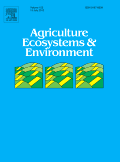
AGRICULTURE ECOSYSTEMS & ENVIRONMENT
Innovating Research for a Greener TomorrowAGRICULTURE ECOSYSTEMS & ENVIRONMENT is a premier journal published by Elsevier, specializing in the fields of agronomy, animal science, and ecology. With an impressive impact factor reflective of its stature, it ranks in the top quartile (Q1) across three significant categories, highlighting its critical role in advancing research within the agricultural and environmental sciences. The journal serves as a vital platform for disseminating high-quality research that addresses the complex interactions between agriculture and ecosystems, providing insightful methodologies and findings that inform sustainable practices. As the journal continues to converge from 1983 and through to 2025, it remains committed to offering both traditional and innovative access options while contributing to the academic community's understanding of pressing environmental challenges. Researchers, professionals, and students are encouraged to engage with the journal's comprehensive content, which is positioned among the elite in its fields, having achieved top rankings in Scopus across relevant disciplines.

ACTA ZOOLOGICA BULGARICA
Exploring Biodiversity Through Rigorous ScholarshipACTA ZOOLOGICA BULGARICA is a prominent academic journal dedicated to advancing knowledge in the fields of Animal Science, Zoology, Aquatic Science, Ecology, Evolution, Behavior, and Systematics. Published by the Institute of Zoology, Bulgarian Academy of Sciences, this journal serves as an invaluable platform for researchers, professionals, and students to disseminate their findings and engage with contemporary issues in biodiversity and ecology. With an established history since its convergence in 2010 and an ongoing publication schedule through to 2024, the journal holds a Q4 category ranking in multiple disciplines, highlighting its role in fostering scholarly communication in these areas despite its recent entry into Scopus-indexed rankings. Although currently not an open-access journal, ACTA ZOOLOGICA BULGARICA remains a key resource for those interested in the latest research and developments, particularly within the ecological and zoological landscapes of Europe and beyond.
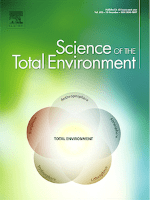
Science of The Total Environment
Exploring the Interconnections of Our EnvironmentScience of The Total Environment, an esteemed journal published by Elsevier, holds a significant position in the field of environmental science, encompassing critical areas such as Environmental Chemistry, Environmental Engineering, Pollution, and Waste Management and Disposal. With an impressive impact factor and ranked in the Q1 quartile across its categories for 2023, the journal is recognized for its high-quality research output and contribution to environmental sustainability. Operating from its base in the Netherlands, the journal has been a valuable resource since its inception in 1972, welcoming innovative studies that address complex environmental challenges. Its notable rankings—such as Rank #9 in both Environmental Sciences and Pollution—underscore its relevance and influence in the academic community. Although the journal currently does not provide an open access option, the robust findings and discussions presented within its pages continue to foster a deeper understanding of environmental issues. Science of The Total Environment is an essential platform for researchers, professionals, and students dedicated to advancing knowledge and solutions in the rapidly evolving field of environmental science.

WETLANDS ECOLOGY AND MANAGEMENT
Fostering interdisciplinary dialogue in wetland science.Wetlands Ecology and Management, published by Springer, is an esteemed journal that has been advancing the field of wetland studies since its inception in 1982. Operating under the ISSN 0923-4861 and E-ISSN 1572-9834, this journal is headquartered in the Netherlands and serves as a critical resource for researchers, professionals, and students alike. It fosters interdisciplinary dialogue among aquatic science, ecology, and resource management disciplines, ranking in the Q2 category for Aquatic Science and Ecology, Evolution, Behavior and Systematics as of 2023. With a notable Scopus ranking, it is positioned favorably within the 65th percentile in Ecology and a commendable 58th percentile in Aquatic Sciences. The journal emphasizes the importance of effective management strategies and policies in the conservation of wetlands, making it indispensable for those aiming to drive impactful research. Although it is not an open-access journal, its high-quality publications remain accessible through library consortia and institutional subscriptions, ensuring that pertinent insights into the ecological dynamics and sustainable management practices are available to the global research community.

Biogeosciences
Unveiling the secrets of our planet's biological and geological systems.Biogeosciences, published by COPERNICUS GESELLSCHAFT MBH in Germany, is a prestigious open access journal that has been a leading platform for innovative research since its establishment in 2004. With an impressive impact reflected in its Q1 rankings within both the Earth-Surface Processes and Ecology, Evolution, Behavior and Systematics categories, it caters to a diverse readership encompassing researchers, professionals, and students engaged in the life sciences and earth sciences. The journal's commitment to disseminating high-quality research is evident from its exemplary Scopus rankings, highlighting its role in fostering advancements and discussions in biogeoscience. With full open access options, readers worldwide can freely explore significant findings that contribute to our understanding of ecological and geoscientific principles. As the journal converges into its next decade, it continues to be an essential resource for those seeking to bridge the disciplines of biology and earth sciences.

LAKE AND RESERVOIR MANAGEMENT
Fostering interdisciplinary collaboration for better water management.LAKE AND RESERVOIR MANAGEMENT is a premier academic journal published by Taylor & Francis Inc, providing a dedicated platform for the dissemination of high-quality research and innovations in the field of aquatic management. With an ISSN of 1040-2381 and an E-ISSN of 2151-5530, the journal encompasses a broad spectrum of topics related to the sustainable management and ecological assessment of lakes and reservoirs. As an essential resource for researchers, professionals, and students involved in environmental science, hydrology, and water resource management, the journal aims to address critical issues such as water quality, ecosystem services, and the impact of human activities on aquatic systems. Additionally, the journal promotes interdisciplinary approaches that foster collaborative solutions for effective management of aquatic resources. Although it currently does not offer open access, LAKE AND RESERVOIR MANAGEMENT remains influential in shaping policies and practices within the field, making it a vital read for anyone dedicated to advancing knowledge and practice in aquatic ecosystem management.
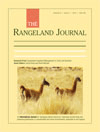
RANGELAND JOURNAL
Championing Sustainable Practices in Rangeland ManagementRangeland Journal, published by CSIRO PUBLISHING, stands as a pivotal resource within the fields of ecology and environmental science. With an ISSN of 1036-9872 and an E-ISSN of 1834-7541, this journal has been disseminating critical research findings from 1998 to 2024, particularly focusing on the intricate dynamics of rangelands and their ecological significance. The journal is recognized for its contributions to the Q3 category in both Ecology and Ecology, Evolution, Behavior and Systematics, demonstrating its relevance in advancing scholarly discourse among researchers and professionals alike. Furthermore, with Scopus ranking it in the 57th percentile within its respective categories, the Rangeland Journal serves as an essential platform for fostering academic exchange and promoting sustainable management practices in rangeland environments. While currently not an open-access publication, it remains a vital institution for those dedicated to the stewardship and study of these unique landscapes.
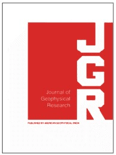
Journal of Geophysical Research-Biogeosciences
Bridging Science and Action for Global Environmental Challenges.Journal of Geophysical Research-Biogeosciences, published by the American Geophysical Union, is a premier academic journal dedicated to advancing our understanding of biogeochemical processes and their interactions within Earth's systems. With an impressive impact factor reflective of its rigorous peer-review process and outstanding scholarly contributions, the journal ranks in the Q1 quartile across a multitude of essential categories, including Aquatic Science, Atmospheric Science, Ecology, Forestry, Paleontology, Soil Science, and Water Science and Technology, highlighting its significance in multidisciplinary research. Researchers, professionals, and students alike will find invaluable insights and comprehensive studies that facilitate a deeper understanding of environmental changes and ecological dynamics. For those interested in open access options, it provides valuable networking among leading experts in the field, especially for collaborative research that aims to address critical global challenges related to climate change and ecosystem health. This journal serves as a key resource for anyone involved in geophysical and biogeosciences, making significant contributions toward the sustainability and management of Earth's biogeochemical cycles.
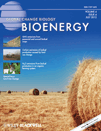
Global Change Biology Bioenergy
Pioneering Research at the Intersection of Biology and BioenergyGlobal Change Biology Bioenergy, published by WILEY, is a leading peer-reviewed journal that focuses on the interplay between biological processes and bioenergy production, contributing significantly to the fields of agronomy, forestry, and environmental sustainability. Established in 2009, this Open Access journal, based in Germany, has gained recognition in the academic community, boasting impressive quartile rankings in 2023: Q1 in Agronomy and Crop Science, Forestry, Renewable Energy, Sustainability and the Environment, and Waste Management and Disposal. With its rigorous publication standards and commitment to disseminating vital research, Global Change Biology Bioenergy ranks highly in various Scopus categories, ensuring that cutting-edge studies reach a broad audience. By providing a platform for innovative research, the journal fosters collaboration and knowledge exchange among researchers, professionals, and students dedicated to tackling the pressing challenges posed by global change and the future of bioenergy.